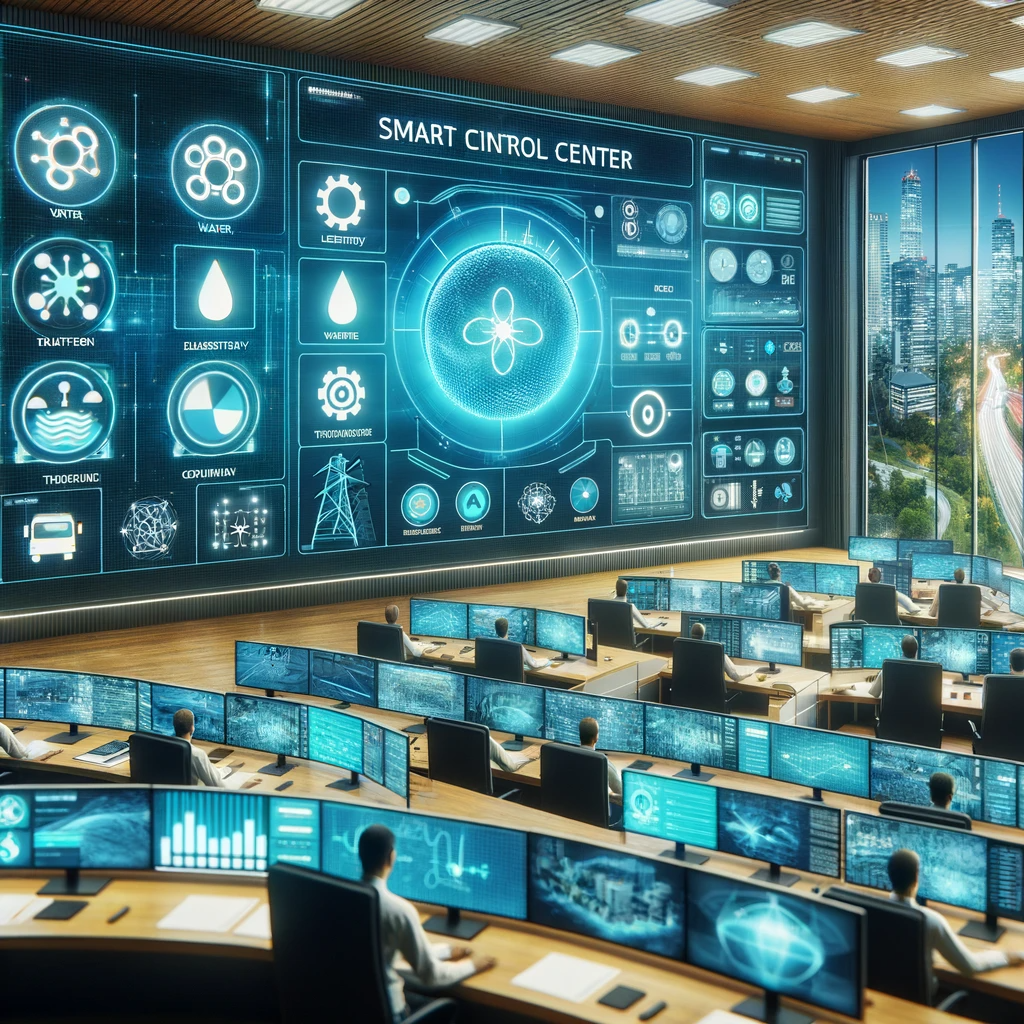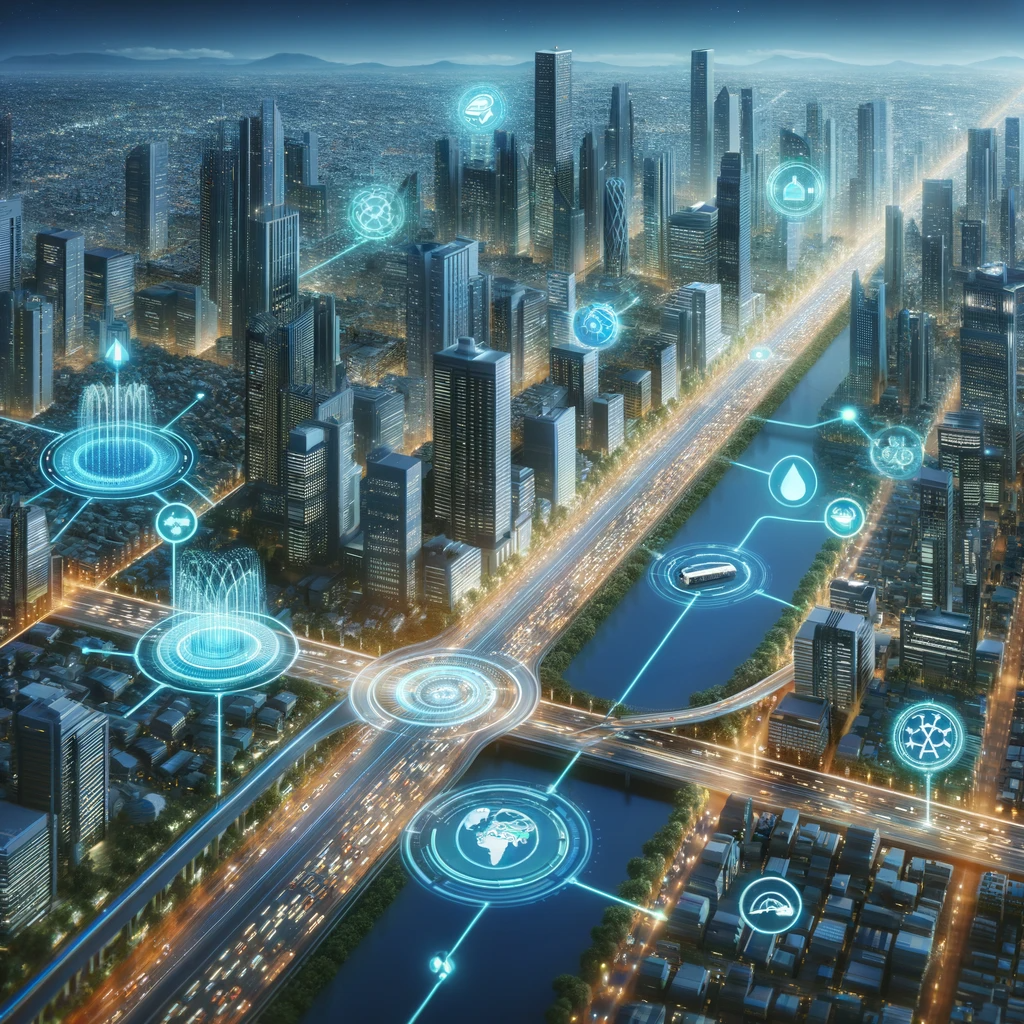In an era defined by rapid urbanization, the management of public utilities has become a paramount challenge for cities around the world. As urban populations continue to swell, the demand for essential services like water, electricity, and gas is reaching unprecedented levels. Meeting these demands efficiently and reliably has become a critical concern for city planners and policymakers. Enter Artificial Intelligence (AI), a technological frontier that holds the promise of revolutionizing the way cities manage their public utilities.
In this article, we embark on a journey to explore the transformative potential of AI in the realm of public utility management for cities. The challenges faced by urban areas in delivering essential services to their residents are multifaceted, from ensuring a constant water supply to maintaining a stable electrical grid and ensuring the safety of gas distribution. The incorporation of AI offers a beacon of hope in addressing these challenges.
AI’s ability to process vast amounts of data, predict demand patterns, and automate decision-making processes presents a game-changing opportunity for cities. By harnessing the power of AI, city officials and utility providers can enhance efficiency, reliability, and sustainability in the management of essential public services.
In the following sections, we will delve into the applications of AI in water utility management, optimizing electricity grids, ensuring gas utility safety, and even the concept of smart cities with integrated utility management systems. We will also address the challenges and ethical considerations that accompany AI integration into public utilities and envision the future where AI plays a central role in ensuring the well-being of urban populations.
As cities worldwide grapple with the ever-growing demands of their residents, the question arises: Can AI truly optimize public utility management for cities? Join us on this exploration of AI’s potential to revolutionize the urban landscape and meet the rising needs of our urban future.
The Urban Challenge of Public Utility Management
As the world’s urban population continues to surge, cities are faced with a monumental challenge: providing essential services to a rapidly growing number of residents. The efficient management of public utilities such as water supply, electricity distribution, and gas infrastructure is paramount to the well-being and sustainability of urban areas.
The consequences of inadequate utility management are far-reaching. Insufficient water supply can lead to shortages and hygiene issues, unreliable electricity grids can disrupt daily life and economic activities, and compromised gas distribution systems pose safety risks. These challenges call for innovative solutions that not only meet current demands but also prepare cities for the future.

The Role of AI in Public Utility Management
Artificial Intelligence offers a transformative solution to the complex challenges of public utility management in cities. At its core, AI excels at processing vast amounts of data, identifying patterns, and making informed decisions. These capabilities are invaluable when it comes to optimizing the allocation and distribution of essential resources.
AI-driven solutions can predict demand patterns for utilities, enabling proactive planning and resource allocation. They can automate routine maintenance and decision-making processes, reducing operational costs and improving reliability. Additionally, AI can enhance the overall resilience of utility systems by quickly detecting and responding to anomalies and disruptions.
AI-Powered Water Utility Management
In the realm of water utility management, AI plays a crucial role in ensuring a continuous and safe water supply. By analyzing data from various sources, AI can predict water demand, detect leaks in pipelines, and optimize water treatment processes. Cities that have embraced AI in water management have experienced significant reductions in water wastage and improved water quality.
Case studies from cities around the world demonstrate the tangible benefits of AI in water utility management. From Singapore’s smart water grid to California’s water conservation initiatives, AI has proven its potential to revolutionize how cities deliver this essential resource.
Enhancing Electricity Grids with AI
Electricity grids are the lifeblood of modern cities, powering homes, businesses, and industries. AI-driven solutions are instrumental in ensuring the reliability and efficiency of these grids. AI can optimize energy distribution, balance load, and predict and prevent outages.
Through advanced analytics and predictive maintenance, AI minimizes downtime, reduces energy losses, and improves the integration of renewable energy sources. Cities that have adopted AI in their electrical infrastructure are witnessing more robust, sustainable, and resilient power systems.
Gas Utility Management and Safety
Gas utilities pose unique challenges in terms of safety and distribution. AI can enhance safety measures by continuously monitoring gas pipelines for leaks and anomalies. Automated systems can quickly detect irregularities and trigger emergency responses, mitigating potential disasters.
Cities that prioritize gas utility management with AI applications can ensure the safety of their residents while maintaining an efficient gas supply network. Early detection and rapid response to gas leaks can save lives and protect the environment.
Smart Cities and Integrated Utility Management
The concept of smart cities takes AI-powered utility management to the next level. In smart cities, AI is integrated into various systems, allowing for the seamless coordination of public utilities. These integrated systems not only enhance efficiency but also contribute to sustainability and resilience.
For instance, a smart city may use AI to optimize water, electricity, and gas usage simultaneously, adjusting supply and demand in real-time to minimize waste and reduce costs. This holistic approach to utility management positions cities to better meet the ever-evolving needs of their populations.
Overcoming Challenges and Ethical Considerations
While the potential of AI in public utility management is promising, it is not without its challenges and ethical considerations. Data privacy, security, and the potential for bias in AI algorithms must be addressed. Additionally, the displacement of jobs due to automation is a concern that cities must manage responsibly.
Ethical considerations include ensuring equitable access to AI-driven utilities and making decisions transparent and accountable. Striking a balance between automation and human oversight is crucial to avoid unintended consequences.

The Future of AI in City Utility Management
The future of AI in city utility management holds exciting possibilities. As AI technologies continue to advance, cities can expect even more innovative applications. Collaborations between AI experts, city planners, and utility providers will drive further advancements.
The integration of AI into city utility management is poised to become a standard practice, ensuring sustainable, efficient, and resilient urban environments.
In conclusion, AI has the potential to be a transformative force in optimizing public utility management for cities. By harnessing the power of AI, cities can efficiently allocate resources, enhance reliability, and ensure the well-being of their residents.
As urbanization continues to reshape the world, cities must embrace innovative solutions like AI to meet the rising demands of their populations. The question of whether AI can truly optimize public utility management for cities is not a matter of if, but when and how effectively.
